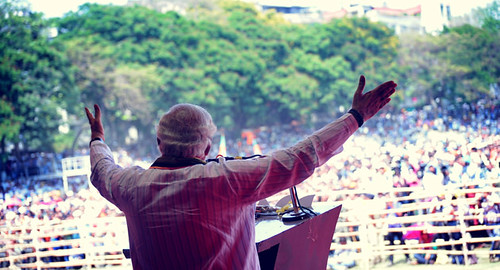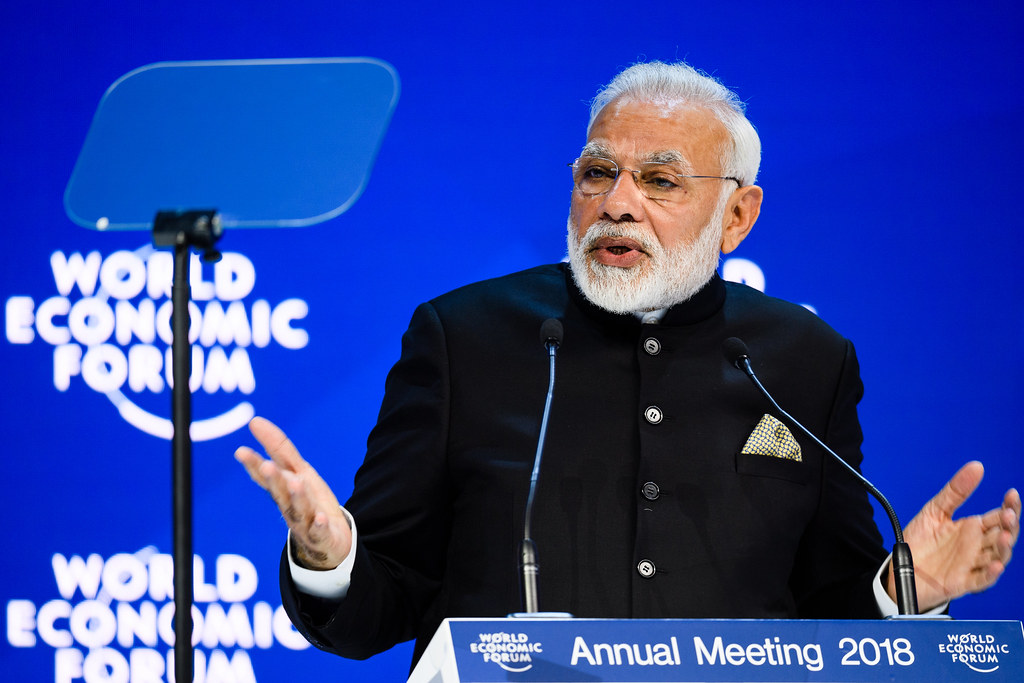India’s transformative yet divisive Prime Minister Narendra Modi declared victory in the national elections on Tuesday evening. However, his goal of securing an unassailable majority is now in jeopardy as early results reveal a surprising outcome that diminishes his party’s stronghold on power.
“Today is a glorious day… The National Democratic Alliance (NDA) is going to form the government for the third time. We are grateful to the people,” Modi told cheering supporters at his party headquarters in New Delhi, referring to his political alliance. “This is a victory for the world’s largest democracy.”
Modi is set to form a government with the support of his NDA allies, securing a third consecutive term, which marks him as one of the most successful politicians in post-independence India. While final votes are still being tallied, India’s election authority has confirmed that the NDA coalition has secured the necessary majority with 272 seats.
Despite this, preliminary figures from the election commission indicate that Modi’s ruling Bharatiya Janata Party (BJP) has fallen short of the 272 seats required for an outright majority in parliament. This stunning upset leaves the BJP dependent on coalition partners to form a government.
This outcome is a personal blow to Modi, who had confidently vowed to win a 400-seat supermajority in this year’s election. In previous elections, he secured straightforward majorities for the BJP, transforming his Hindu nationalist right-wing party into an electoral powerhouse. India’s opposition, largely dismissed by polls and analysts, framed the result as a rejection of Modi’s divisive leadership.
Rahul Gandhi, leader of India’s National Congress, claimed that early election results demonstrated that the “country has unanimously and clearly” stated its opposition to Modi and his party’s rule.
“We do not appreciate the way they have run this country for the last 10 years. That is a huge message for Mr. Narendra Modi,” Gandhi said outside his party’s headquarters in New Delhi.
While the opposition alliance led by Congress has not succeeded in toppling Modi, they have managed to undermine his aura of electoral invincibility, making significant gains even in BJP strongholds. Preliminary results suggest the Congress alliance may double the number of seats won in 2019.
Currently, election commission figures show the BJP’s alliance winning around 300 seats compared to 230 for the opposition alliances. Final results are expected in the coming hours.
Indian stocks plunged on Tuesday as Modi’s hopes of a landslide victory diminished, raising doubts about his ability to push through more aggressive economic reforms.

‘Sent by God’
To his millions of supporters in the Hindu majority nation, 73-year-old Modi is an icon whose policies have transformed lives and propelled India towards economic growth and confidence. His supporters view him as an instrument of God, chosen to represent all the people of India.
However, to many religious minorities, Modi’s tenure has been marked by increased religious persecution and Islamophobia. Critics accuse him of endorsing sectarianism to support his party’s Hindu-nationalist agenda, potentially transforming India into a majoritarian Hindu state.
Modi’s victory will have global implications, particularly capturing the attention of the United States, China, and Russia. Washington sees New Delhi as a crucial regional counterbalance to an assertive China, although India maintains close ties with Moscow, including purchasing cheap Russian oil despite Western-led sanctions.
Modi aims to deepen his transformation of India, aspiring to turn the nation into a developed country by 2047, the centenary of its independence from British colonial rule. While India’s economy is growing, challenges such as youth unemployment and inequality persist.

A Decade of Transformation and Controversy
Modi has upgraded India’s aging transport network, built highways, developed new power plants, and subsidized housing for impoverished families. However, his tenure has not been without controversy. He faced criticism for demonetizing large currency notes in 2016, mishandling farmer protests in 2019, and managing the Covid-19 pandemic, which resulted in over half a million deaths.
For some, another five years of Modi signals troubling times ahead. Congress supporter Sunita Gautam believes his continued leadership will exacerbate issues for women and minorities. “We won’t be safe. It’s horrible for Muslims. It’s horrible for Dalits. Who is it good for?” she asked. “Modi promised employment for youth but look at the number of people unemployed.”
As votes are counted and final results awaited, Modi’s victory amidst shock losses and coalition dependence highlights the evolving political landscape in India.





